President's Message

Paul D. Sponseller, MD, MBA
SRS President 2019-2020
What a year! I trust that you were able to learn much from the SRS Pre-Meeting Course and Annual Meeting last week. If there is a positive to this format, it could be your ability to target more precisely the information that you want to learn. I would like to tell all members how resourceful your SRS staff has been in pivoting to this new format with no loss of information.
Read more »
Inside this Issue
Read more »
Hot Topic Articles
2020-2021 Committee Leadership
Corporate Relations Committee Update
Development Committee Update
SRS at EUROSPINE 2020 | Tuesday, October 6, 2020 »
Read more »
In Memoriam

Stanley Hoppenfeld, MD
July 31, 1934 - May 15, 2020 |
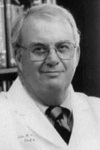
John M. Roberts, MD
February 27, 1932 - August 8, 2020 |
Read more »

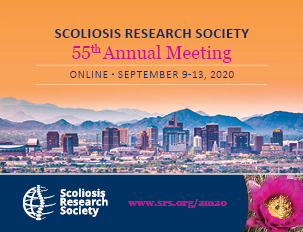
Access online content through December 31, 2020.
Read more »
Historian Corner

George H. Thompson, MD
SRS Historian
Did you know that 60 years ago…
The first major podium presentation by Dr. Paul Harrington describing his new operation for the treatment of scoliosis was made in June 1960 at the America Orthopaedic Association meeting in Hot Springs, Virginia.
And 40 years ago…
The first SRS research grant was awarded to Dr. Morey S. Moreland for his project on three dimensional shape and measurement in scoliosis.
Read more »
Ethics Corner
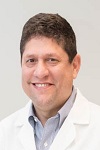
Gary Fleischer, MD
Ethics & Professionalism Committee Member
Worker's Compensation
Scenario 1:
Dr. Jones is engaged by a Worker’s Compensation insurance carrier to perform an Independent Medical Examination on Mrs. Smith for a presumably work-related injury.
Scenario 2:
Dr. Jones is reviewing another case for a different Worker’s Compensation carrier. In this case, Mr. Brown is being evaluated for a proposed lumbar fusion after sustaining a fall resulting in a spondylolysis that has failed nonoperative management.
Read more »
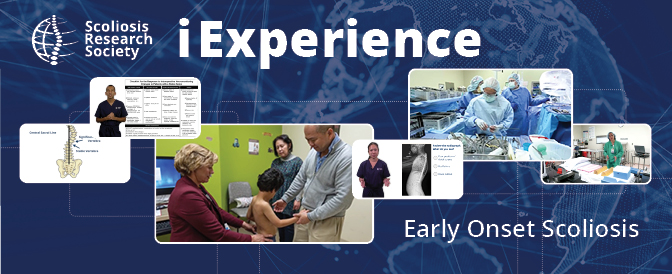
Read more »
Nominating Committee Update

Peter O. Newton, MD
Nominating Committee Chair
The nominating committee is tasked with evaluating nominated candidates for elected positions within the society. This year in addition to the Vice President and 3 Board of director at large positions, a secretary elect and research council chair elect are also being chosen.
Read more »
2020-2021 Committee Leadership

Congratulations and a warm welcome to the following SRS members on their appointments as Committee Chairs for 2020-2021.
Read more »
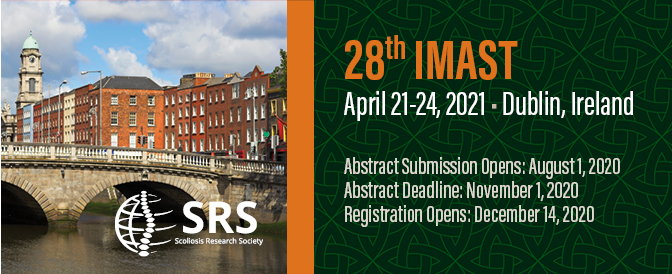
Read more »
Research Promotion & Oversight Committee Update
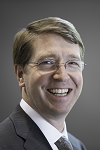
Douglas C. Burton, MD
Research Promotion & Oversight Committee Chair
One of the outcomes of the Research Task Force led by Research Council Chair Marinus de Kleuver was the creation of a new committee, the Research Promotion and Oversight Committee. As the name indicates, this committee has the dual charge to promote SRS funded research inside and outside of the society and to oversee the progress and reporting of our funded studies.
Read more »
Bylaws & Policies Committee Update

J. Michael Wattenbarger, MD
Bylaws & Policies Committee Chair
Over the course of the last several months, an in depth review of the SRS Policy Manual was completed. As our Society has continued to evolve, so do the policies that govern the work that we do.
Read more »
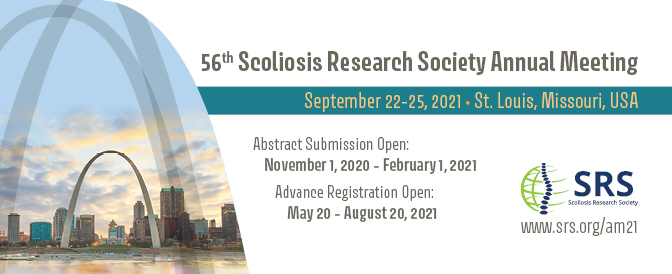
Read more »
Development Committee Update
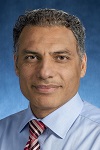
Khaled M. Kebaish, MD
Development Committee Chair
As with many things, COVID-19 has affected charitable donations to SRS. Our year to date donations are not quite matching what we have seen in past years. That being said, SRS tends to see a surge in donations the final months of the year, and we are hopeful that this with hold true in 2020 as well. If you would like to support SRS through a charitable donation, please visit www.srs.org/donate.
Read more »
Adult Deformity Committee Update
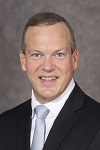
Eric O. Klineberg, MD
Adult Deformity Committee Chair
The Adult Deformity Committee had another productive year. We remained committed to our charges from the Presidential Line; including generating educational content, determine educational gaps, and generating website content. Obviously the COVID-19 pandemic has made our work challenging, and our committee members have been responsible for their local health response beyond the spine domain.
Read more »
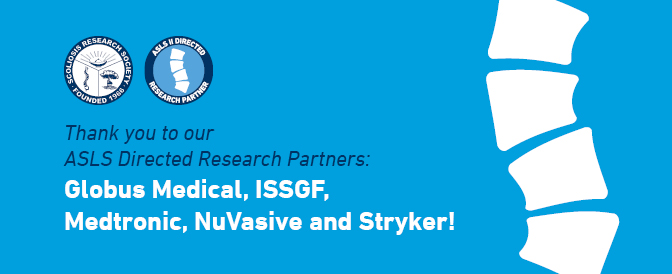
Read more »
Corporate Relations Committee Update

Peter O. Newton, MD
Corporate Relations Committee Chair
This committee works with our corporate partners to identify areas of mutual interest that benefits the mission of the SRS with regards to education and research to advance spinal deformity care for our patients.
Read more »
Communications Committee Update
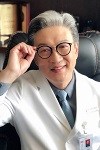
Yan Wang, MD
Communications Committee Chair
The Communications Committee has been active. As part of the SRS Research Task Force’s innovative dissemination of SRS Research initiative, the creation of SRS Podcasts was approved earlier this year. The SRS Board endorsed podcasts that are similar to the webinars and social media efforts that would allow for expansion of ideas presented.
Read more »
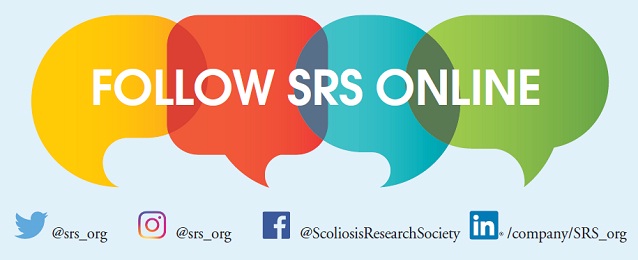
Read more »




